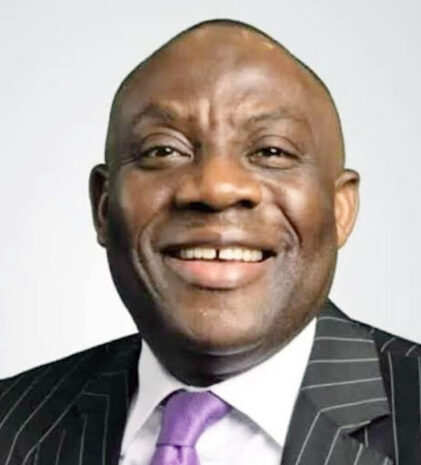ABUJA: In a bold move to promote inclusion and widen access to quality education, the Federal Government has announced the institutionalisation of sign language teaching and learning across all basic education schools in Nigeria.
This initiative coincides with sweeping reforms in tertiary education entry requirements that eliminate compulsory Mathematics for Arts and Humanities courses.
Executive Secretary of the Universal Basic Education Commission (UBEC), Aisha Garba, disclosed the sign language policy in Abuja on Thursday during the commemoration of the 2025 International Day of the Girl Child, themed Lead a Change: Learn Sign Language Today.
Garba said the policy was designed to ensure that no child is left behind, particularly girls and children with disabilities, as part of the government’s renewed commitment to inclusive education.
We celebrate not only the potential of the girl child, but we also reaffirm our collective responsibility to amplify her voice, protect her dignity, and equip her for leadership regardless of her abilities or challenges,” she stated.
She noted that the teaching and learning of sign language would become a permanent feature in Nigeria’s basic education curriculum, adding that the Federal Government envisions a society where communication barriers are removed for people with hearing impairments.
Imagine a country where hospitals, banks, supermarkets, airports, and indeed schools have sign language interpreters. Then you will have a system without communication barriers for our hearing-impaired children.
That is the vision we are working towards—one school, one change, at a time,” she added.
Garba further revealed that the restructuring policy also mandates the inclusion of ramps and accessibility structures in schools to ensure that children with physical disabilities can move with dignity and ease.
On her part, Minister of State for Education, Professor Suwaiba Ahmad, reaffirmed President Bola Tinubu’s administration’s commitment to removing barriers and creating equal opportunities for every learner, irrespective of ability or background.
This moment reaffirms our nation’s commitment to inclusive education, to the rights of persons with disabilities, and to the expansive potential of every girl learner,” she said.
The minister also underscored that inclusive education remains central to the Renewed Hope Agenda, which prioritizes access, equity, and quality learning outcomes for all.
Meanwhile, in a complementary reform aimed at expanding access to higher education, the Federal Ministry of Education (FME) has revised entry requirements for tertiary institutions, most notably removing the compulsory Mathematics credit requirement for students seeking admission into Arts and Humanities programmes.
Under the new National Guidelines for Entry Requirements, Mathematics remains mandatory only for Science, Technology, and Social Science courses, while Arts and Humanities applicants will require a minimum of five credits in relevant subjects, including English Language, obtained in not more than two sittings.
Minister of Education, Dr. Tunji Alausa, described the reform as a strategic step to democratize access and expand the nation’s tertiary education capacity.
Every year, over two million candidates sit for the Unified Tertiary Matriculation Examination (UTME), yet only about 700,000 gain admission.
This imbalance is not due to lack of ability but outdated and overly stringent entry requirements that must give way to fairness and opportunity, Alausa explained.
The reform is expected to boost annual student intake by up to 300,000, aligning with the administration’s goal of creating one million higher education opportunities yearly.
Education analysts have welcomed the reforms as transformative and inclusive, describing the twin policies as significant milestones that reflect a clear shift toward accessibility and equity in Nigeria’s education system.
Together, these measures mark a new chapter in Nigeria’s education policy one that prioritizes inclusion, fairness, and innovation as the nation works to equip all children and youths with the tools to learn, lead, and thrive.



